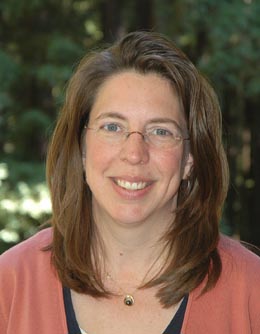It's tough to be a food scholar at Thanksgiving.
In the food-obsessed Bay Area, this is the time of year when talk turns to free-range, hand-fed organic turkey, heritage vegetables harvested by unionized labor, and the perfect pinot noir.
Friends and strangers alike assume I belong to one, or more, of the moral communities made up of Slow Food proponents, organic advocates, locavores, and haute cuisine aficionados.
People are thus shocked when I reveal that although I love a good meal as much as the next person, I am not a food snob. And as discussions of Thanksgiving feasts reach a fever pitch, I look forward to spending my Thanksgiving at the zoo.
For the last four years, my husband and I have celebrated the holiday at Happy Hollow Zoo. It started in 2004, when the zoo hosted a special "Feast for the Beasts" event during which zoo animals received special holiday meals served in even more festive containers. (I think the jaguar enjoyed the box her turkey came in more than the dinner itself.)
As recent transplants from the East Coast, my husband and I were happy to be surrounded by beasts and zoo visitors, mostly fathers and small children banished from their home kitchens so Mom could cook dinner in peace. Last year, Happy Hollow discontinued the special holiday meals, but the zoo was still open, and we were there, joined by hundreds of others.
We began this tradition to avoid the lonely prospect of staring at one another across a vast dining room table, our extended families far away. But even now, settled as we are in San Jose with good friends and family, it just feels right to spend part of the day visiting with our extended zoo family before going home to our own Thanksgiving table.
And so I come to this: Although food is central to Thanksgiving, obsessing about the meal seems to me to divert attention away from the value of sitting down in community and pondering the many blessings of our lives.
Thanksgiving is, at its heart, about reflection, contemplation, and community, the very values espoused by Slow Food founder Carlo Petrini but so often ignored in our rush to make sure we adhere to the mandates of socially responsible and politically correct dining.
Thanksgiving as I have experienced it has always been first and foremost about family and friends. In some years, there were not enough tables and chairs to accommodate the menagerie of family, friends, friends of friends, roommates, neighbors, colleagues, and foreign-exchange students who showed up. In other years, the gathering was more intimate but no less festive.
The rituals of laughter, banter, and long-distance telephone calls from loved ones far away are with us each year, even as we miss those who cannot be with us and grieve the loss of those who will never be with us again.
Those who are absent are still with us in the stories we retell and the recipes that get passed down from generation to generation.
Thanksgiving is one day when we pause to give each other our undivided attention. Food may be the lure that brings us together, but it is not the main focus of the day.
----
Melissa Caldwell is an associate professor of anthropology at the University of California, Santa Cruz. She is coeditor of The Cultural Politics of Food and Eating and author of Not by Bread Alone: Social Support in the New Russia.



